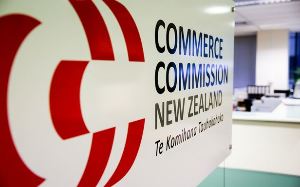Real estate price-fixing saga ends with big penalty
Price-fixing is in the spotlight, once again, after the Auckland High Court ordered two Hamilton real estate agencies to pay $4 million for engaging in it.
Thursday, September 10th 2020, 10:27AM
by The Landlord

Lodge Real Estate Limited and Monarch Real Estate have been ordered to pay $2.1 million and $1.9 million respectively for price-fixing in breach of the Commerce Act.
The Court’s penalty judgment comes after the Supreme Court conclusively ruled – back in April - that the two agencies had come to a price fixing arrangement around online listing fees.
It brings to an end a long-running legal saga which began when Trade Me changed its online property listing fees in 2013.
This change led to a group of national real estate agencies, Hamilton real estate agencies and Manawatu real estate agencies meeting to discuss their response.
The Commerce Commission alleged the result of the meeting was an agreement to pass on the costs of Trade Me’s pricing change for real estate listings to vendors.
It said this amounted to price-fixing and, in late 2015, it took 13 agencies and three individuals to court over it.
Most of the agencies admitted their liability and agreed to pay the Commission penalties amounting to millions of dollars.
But Lodge Real Estate and Monarch Real Estate denied their liability and decided to pursue the matter through the Courts.
There were ups and downs in their battle with the High Court finding in their favour, before that finding was overturned in the Commission’s favour by first the Court of Appeal and then the Supreme Court.
Lodge and Monarch have now been penalised for their roles in coordinating the Hamilton regional response to Trade Me’s pricing decision.
Including the penalties ordered today, the final total of penalties imposed on the 13 agencies and three individuals involved in the legal proceedings amounts to just under $23 million.
But the Commission also issued warnings to an additional eight agencies for their role in the conduct.
Commission chair Anna Rawlings says it is not unusual for industries to experience price increases from suppliers and this case illustrates how important it is that companies avoid any discussions with their competitors on how they could or should respond to such a change.
“Cartels can harm consumers and business by raising prices, restricting supply and changing the competitive dynamic between businesses.
“The nearly $23 million in total penalties handed down in this case is substantial and from April next year cartel conduct will also be a criminal offence subject to a maximum term of seven years’ imprisonment.
“We strongly urge businesses to familiarise themselves with the law and ensure they have processes in place to guard against collusion with their competitors.”
Read more:
ComCom charges real estate agencies after Trade Me row
Supreme Court dismisses price-fixing appeal
| « Interest rates not bargains driving investors | Covid be damned – the market is booming » |
Special Offers
Comments from our readers
No comments yet
Sign In to add your comment
| Printable version | Email to a friend |



